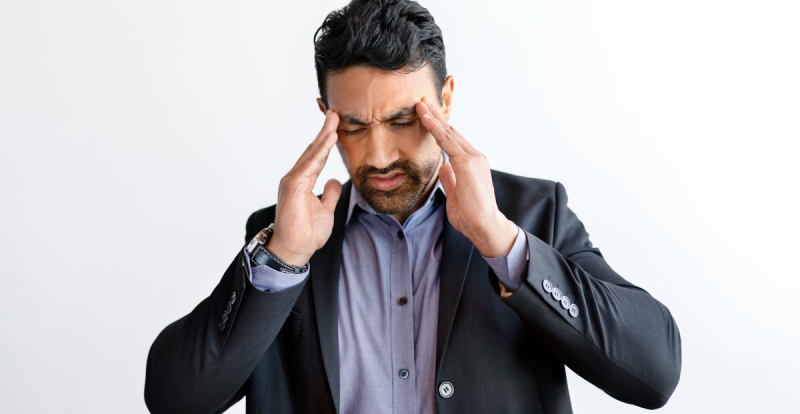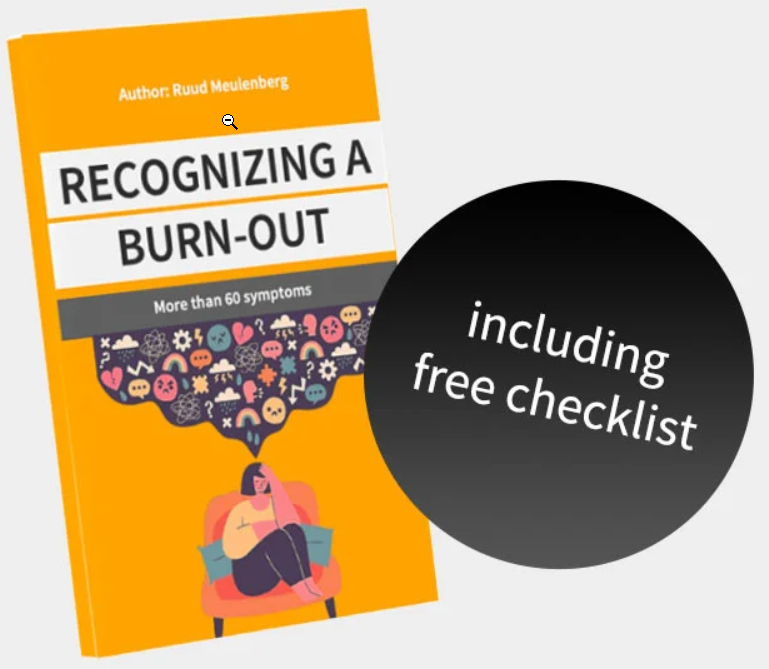No matter how much stress you have, there are many symptoms associated with it. A couple of these symptoms involve dizziness and headaches. Not only that, but dizziness is often caused by an increase in stress. Also, if a disorder is present involving the inner ear, then dizziness can also take place and eventually turn it into a stress disorder. When it comes to a stress disorder, it can occur in close to 20% of an entire population. With so many people affected by stress, it is important to understand how stress and dizziness are connected so that proper diagnosis and treatment can be made.
Defining Vertigo (Dizziness)
When vertigo occurs, you will be experiencing a spinning sensation even though everything around you is motionless. This sensation can cause you to become dizzy, cause you to lose your balance, and cause you to become sick. Depending on the severity, the symptom may last for a short amount of time or even for many days.
There are many reasons why vertigo would occur. Vertigo could happen when you have other health issues happening. Dizziness can also take place when the ear structures are affected by an infection, which can then cause a problem with your balance. Other than health issues, dizziness can now be attributed to stress.
How Dizziness and Stress are Related
The term dizziness is used to describe various sensations like vertigo and lightheadedness, which can lead to feeling unsteady. The cause for dizziness can be attributed to issues that are neurological, psychiatric, or vestibular in nature.
When stress occurs, it can develop into anxiety and when the anxiety becomes overwhelming, you could be affected so badly that it can cause you to become dizzy. Below are other reactions related to stress.
Anxiety Disorder
When anxiety is felt, it will normally lead to you feeling dizzy. This can also be caused by blood pressure fluctuations, which will cause you to feel lightheaded or woozy. More than anything, the dizzy feeling can be attributed to cortisol and adrenaline hormones, which can have an impact on your inner ear.

Ear Infections
When an ear infection takes place, it can be related to an increase in stress and is seen often among conditions that are debilitating in nature. When stress becomes chronic, it could easily cause the risk of an anxiety attack to develop, especially when the condition becomes chronic.
Loss of Balance
It is believed that the loss of balance is attributed to anxiety and other conditions that can affect quality of life. In fact, when the loss of balance is significant in nature, then the amount of quality of life will be lower and the amount of anxiety will be higher.
How Anxiety is Caused
Hypoventilating/Hyperventilating
When the amount of oxygen is not at a balanced amount, the blood’s amount of CO2 will change, and bring about the symptoms of dizziness, an imbalance, lightheadedness, and other symptoms normally associated with anxiety.
Becoming Apprehensive
When you begin to feel apprehensive, it is an active trigger related to stress. This is caused by stress hormones being released into the blood. Once the hormones are released, there are changes that occur on an emotional, physiological, and psychological level that assists in threat prevention. This is known as the “fight or flight” response, which enables you to decide to take on a challenge or run away from it.
Another response that occurs because of stress is the body guarding blood to vital organs in order for a body to survive. These vital organs include the brain, heart, and lungs. The organs that are not considered vital include those involving digestion. When the blood is routed to the important organs, the respirations and heart beat will increase. The changes in the blood can ultimately cause a person to become lightheaded or dizzy.
How Long Term Stress Can Affect You
When you feel stress, your nervous system can be affected and ultimately cause your balance to go out of whack. So when you have been feeling stressed a lot, then you can be certain that your feelings of dizziness plays a role.
Problems with Sleep
When you feel apprehensive, the body will become stressed. As too much stress is accumulated, your body can get hyperstimulated and cause issues with sleep and ultimately feeling fatigued constantly. You can also feel sleep deprived, which can result in dizzy spells.

Download our
free e-book
Recognizing a burnout
(more than 60 symptoms)
A Multitude of Migraine Issues
It is known that a wide variety of migraines that take place can lead to episodes of dizziness. This can also include the symptoms that can develop prior to a migraine developing. Because of stress being so connected with migraines, and because the body is easily stressed by anxiety, a sufferer will go through many more migraines that include dizzy spells.
When dizziness is encountered during a migraine, it can occur prior to a migraine, during the migraine, or even once the migraine has subsided. Also, the migraine may not even be related to the dizziness. When dizziness comes, there may not be any other symptoms.
Taking Medications
A lot of medications that are prescribed have the ability to bring about vertigo or a dizzy spell. This dizzy feeling is usually a side effect of medication given for anxiety. The type of medication will usually involve antidepressants, benzodiazepines, and anticonvulsants. When any of these are given, they will likely also include a side effect of lightheadedness or a dizzy spell. Both of the symptoms that can occur are those experienced with depression and anxiety.
Medications designed to relax or maintain blood pressure are also known to bring about a dizzy spell.
When multiple medications are administered, the side effect could involve dizzy spells. If you are concerned about the side effects of your medications, then you should talk to your doctor about them to see if they could relate to your dizzy feeling.
What Are Your Options?
When vertigo has been plaguing you for a while, you will benefit highly from a visit to an ENT physician. They will then conduct a thorough examination and review your medical history to find any underlying conditions or factors leading to your vertigo. They will then make recommendations for your treatment.
Besides visiting the doctor, you can take steps from home to help decrease the amount of anxiety you experience. Regardless of how the stress occurs, the steps below are able to assist in lowering the stress causing your dizzy spells.
- Make more attempts to relax from stress and calm your mind by having others help out more around the house.
- Make sure that your diet is well-balanced and nutritious and get enough exercise to help you stay healthy.
- Ensure that you are sleeping enough at night with at least 7-8 hours of sleep. This will help you avoid being fatigued during the day.
- Make sure to take time for yourself by enjoying activities that you enjoy so that your mind will be relaxed.
Seeking Treatments
Experiencing vertigo that is chronic in nature will always have a condition causing it, normally an inner ear problem. If that is the case, then a few options for treatment are available.
Prescription drugs – When your doctor feels that a medication will be the best route to take, then they will likely prescribe the following to help in symptom relief: a beta blocker, calcium channel blocker, antidepressants, or a diuretic.
Referring you to physical therapy – When your vertigo is vestibular in nature, then having physical therapy will be able to help relieve your stress as it concentrates on your eyes and head. By combining balance and walking, your vertigo can be decreased and the number of episodes can be lessened.
An episode of vertigo with underlying issues can be treated effectively for anxiety and will be able to show improvement through the use of the following methods:
Changes in lifestyle – Vertigo can easily increase anxiety. If you do not take time for yourself and prevent burnout, then it can become chronic in nature. You need to be careful because you could get into a cycle that becomes difficult to get out of. By having a diet change and knowing when to relax will be even more important. When changes are made, you will also begin to see your quality of life improve.
Can we help you?
Leave us your information and one of our coaches will contact you in 24H

Antidepressant medications – These are prescribed the most for anxiety and depression. A lot of times, these medications may be part of a bigger treatment plan that involves psychotherapy so that a reduction in feelings of anxiety can be reached.
Cognitive Behavioral Therapy – This psychotherapy technique has been shown to improve anxiety and relieve its symptoms. Through the enhancement of self-awareness, the anxiety can be reduced by learning to cope with the chronic symptoms.
Seeking the Necessary Medical Assistance for Dizziness
When vertigo has been an issue for you, and it does not seem to go away on its own, and you are unable to live a healthy life, then it will be time to seek medical assistance. Oftentimes, you will need to undergo numerous tests to determine the causes for your condition. Once the cause is discovered, the proper treatment can then be determined and prescribed.
However, not all of the symptoms or causes may be discovered concerning vertigo. If this is the case, then you may be experiencing a high amount of anxiety. When your anxiety level is high, then you will likely benefit from therapy.
Conclusion
Experiencing dizziness as the result of anxiety is a close relationship and is easily reciprocal. With many cases showing their close relationship, the amount of symptoms can make the condition seem like a loop.
Stress & burnout coaching; for 100% recovery!
Reducing stress and recovering from burnout is simply incredibly difficult. The coaches at Meulenberg Training & Coaching understand exactly what you are going through and know how tough it can be. They have often experienced it themselves! With their years of experience and expertise, they are ready to help you step by step toward a full recovery. The results of our one-on-one coaching and absenteeism training will benefit you for a lifetime!






